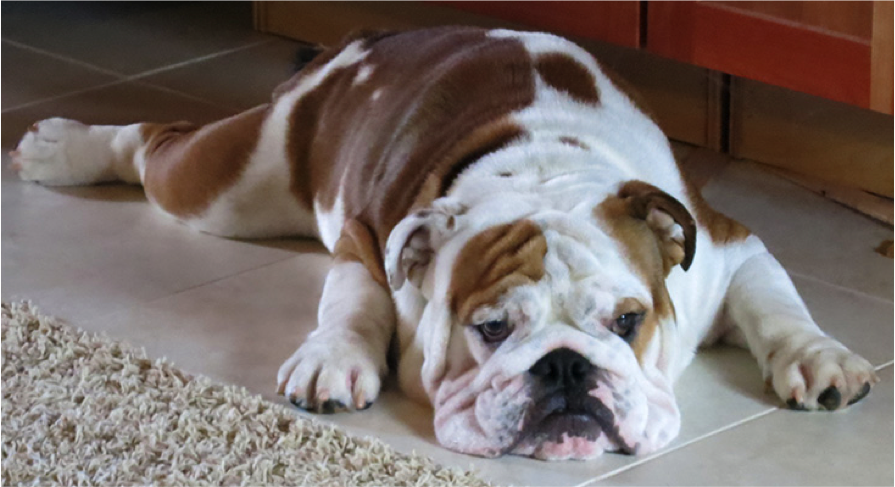How Bubba Got His Name Back or Leadership Lessons as Taught by a Bulldog

Bubba is our English Bull dog. We’ve had him for a little over a year now, but when he first arrived at our house it took a couple of weeks for us to find out what his name was, mostly because he didn’t tell us. Not at first. We asked him, alright, but he wasn’t talking. Family members tried to get us to just pick something, like it was up to us. We tried calling him “Flash” and “Douglas”, we tried “Moku” and “Turtle”, all to no avail- he ignored all of them. One day he and my husband were sitting on the living room floor when my husband looked at him quietly and said, “Bubba” like he was saying “safe” or “home” or “thank you”, and he just smiled. The little pup turned and looked at him with a cocked head, and that was it. Bubba. My husband lost his best friend in his early 30’s due to cancer, and he was named Bubba so I figured that had to be the reason. My husband claims he just heard the name and repeated it out loud at that moment. As it turns out both Bubbas share a good deal in common, so who knows? Either way, we were glad to finally know our dog’s name.
One of the leadership activities I was taught by Puanani Burgess is to tell the Story of Your Names. In sharing our names, we reveal a little about who we are and where we come from in order to Build a Beloved Community. I usually tell the story of how I grew up in Maryland embarrassed by my Hawaiian names because no one pronounced them correctly. People still mispronounce them even though I live in Hawai‘i. Claiming all my names with pride has been a long journey.
In the Hawaiian culture our name is one of our most precious possessions. A name is chosen with careful forethought and reliance on many sources of inspiration including dreams, signs in nature and consultations with ancestors long passed. A name says a great deal about the person, and the person ideally grows into that name fulfilling a kind of prophecy. The more that name is spoken, the stronger its force to cause benefit or harm. So every time a name is forgotten, misspelled or mispronounced, the person or place it is attached to is diminished.
Ours is not the only culture to recognize the power of the name. Edgar Heap-of-Birds is a member of the Cheyenne and Arapaho nations and an artist who uses names to bring awareness to feelings of being an outsider even in the places we live. In his Native Hosts series of public sign installations, he prints the English name of a place in reverse. He prints the “unpronounceable” indigenous name of the place, given by the First Nations who first occupied that site, right-reading. His signs confront us with the question of whether people truly see and appreciate each other and how that affects our sense of belonging.
For too many years I dreaded telling people my names for fear of ridicule. But at some point I came to understand that to “hide” my names was disrespectful to myself, my family, my ancestors and my culture. I came to realize that each of these encounters was an opportunity to teach and to share a little piece of who I am as a person and who we, Hawaiians, are as a people. Each time I say my own name with pride I sing the songs of my ancestors, and they live another day.
Asking other people how to say or spell their name is no small thing to me either. I can lead and follow better when I know where I am going and who I am going with. Vision for leaders is not just imagining the future or what could be. It includes the ability to really see and get to know the people and places that came before us and are right in front of us. Our names are a good place to start.
Today I am the proud owner of Cheryl Lehua Ka‘uhane Lupenui. Today I call on my own names as a source of strength, not shame. Today I hear the songs of my ancestors ring in my ears, and they will live all the rest of my days.
And for the record, Bubba is quite proud of his name, even when he refuses to answer to it (with a Bulldog some days are easier than others).